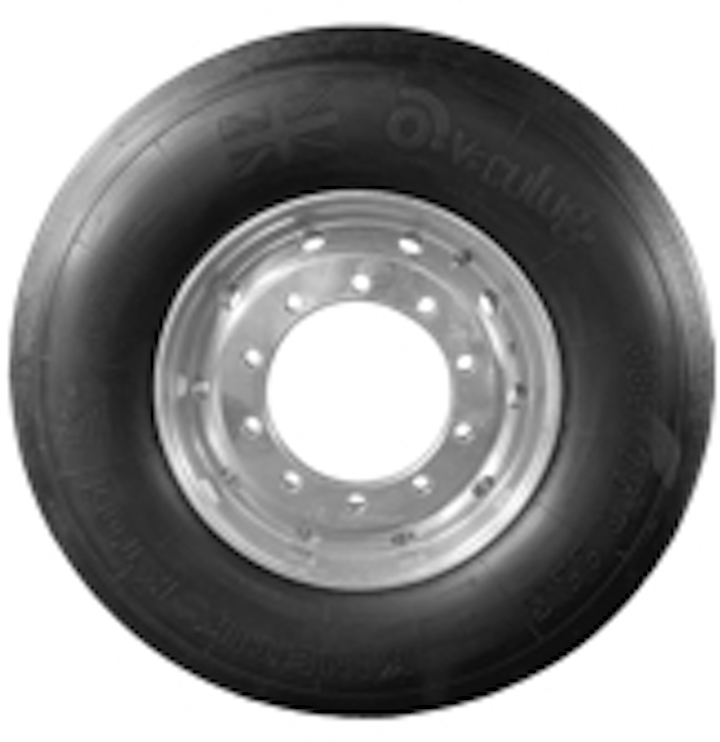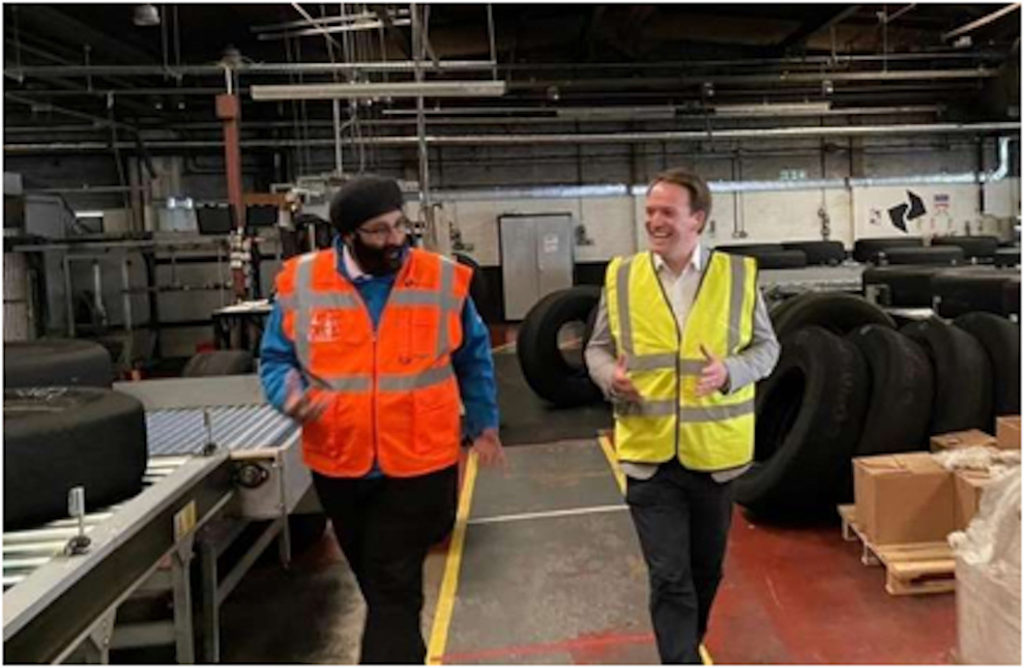Grantham, UK: Vaculug has the launched the world’s first A-rated retread tyre, according to EU tyre labelling laws.
Retreads are not required to have ratings, but Vaculug decided to have their new product manufactured and tested to the same standards as new tyres.
By integrating a high percentage of silica in the tread, Vaculug has succeeded in pushing the limits of rolling resistance to save on fuel, without compromising the tyres’ longevity. Choosing the A-rated KT01 tyre over an F-rated tyre can significantly reduce a fleet’s carbon emissions by 1200 tonnes and lower fuel costs by £475,000 per annum.*
In addition to this new innovation, Vaculug have appointed Kaya Axelsson to develop their sustainability strategy and to formulate their path to net zero emissions. Axelson is the Net Zero Policy Engagement Fellow at Oxford University, where she works to support the practical application of net zero research insights.

Axelsson leads a team of researchers to aggregate and clearly communicate resources for defining and achieving this goal. She has also helped to develop the University of Oxford’s own sustainability strategy, including its pathway to net zero. Vaculug is the first retreader in Europe to publicly affirm its commitment to net zero and have a policy in place in the next quarter with a milestone to achieve this before 2030.
Harjeev Kandhari, executive chairman, Vaculug said: “We set a goal of developing a retread that was as good as the best fuel-efficient new tyres on the market and we’re proud to say that we have beaten this milestone.’

Vaculug are also working on developing a new retread specifically for the electric truck. “Electric vehicle tyres carry a heavier load and have to withstand instant torque, leading to higher tyre wear, so we need to create a stronger sidewall and use more robust rubber compounds,” Kandhari said.
“Greater mass and increased inertia means longer braking distance, so we place a special emphasis on optimal grip. We are working on developing a new tyre in Grantham with our internal research and development team to ensure that our treads work on this basis. We have already worked on this with our rubber supplier partners to have these treads tested in live environments in California andhope to release tyre in the UK in Q3 of this year.”
*Calculation based on the following assumption: Average vehicle consumption 32.3L/100km, 323L/1000km, 14.7% potential savings = 47.5 Litres saved per 1000km, fuel price £1.00/L = 47.48, 100,000km mileage = £4,748, Average fleet = 100 vehicles, 100 x £4,748 = £474,800. Carbon Saving = average of 2.62kg per litre of diesel, 2.62 x 474,800L = 1,243,976kg







